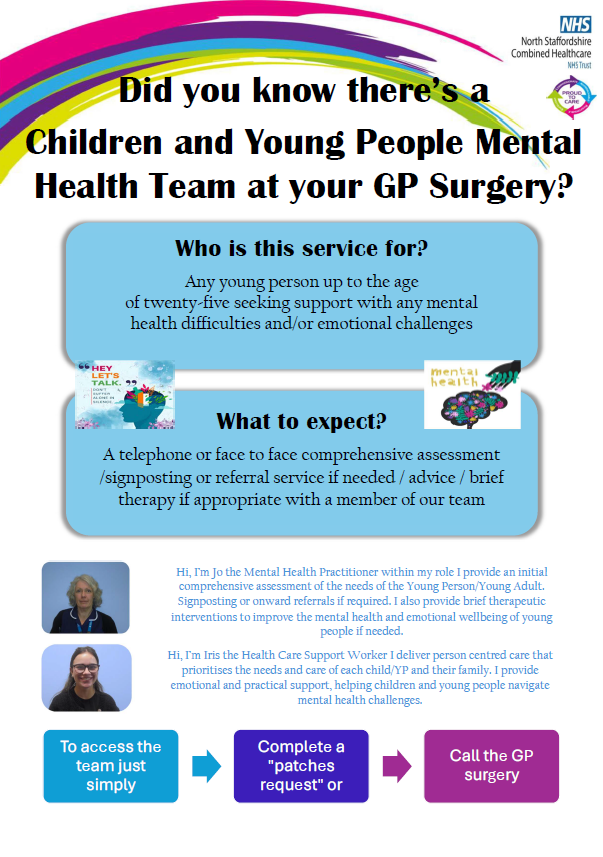Roles within the practice
Roles within the practice
- There are various roles now utilised within modern general practice to support patient access
- These roles support our practice in order that GPs are able to see patients with the most complex and longer term needs
- Roles include Advanced Nurse Practitioners, Urgent Care Practitioners and Pharmacists
- Wider Primary Care Network roles
Do I need to see the GP?
Advanced Nurse Practitioners (ANPs) and Urgent Care Practitioners (UCPs) are highly trained healthcare professionals who can perform many of the same functions as doctors, including assessing patients, making diagnoses, prescribing medication, referrals and managing complex conditions, all while remaining within their scope of practice.
What can ANP and UCPs help with?
- complex patient reviews/assessments
- diagnosing acute and chronic conditions
- treatment of minor illnesses
- prescribing and reviewing medication
- advising on prescribed medication
- evaluating treatment plans
- managing conditions holistically
- ensuring joined-up call for all patients
The role of Pharmacists
- Practice pharmacists undertake medication reviews for patients receiving long term medications. They may also contact you regarding medication changes.
- Community pharmacies in the local area can support minor ailments through the Pharmacy First Scheme as an alternative to a practice appointment.
Wider Primary Care Network roles
- Primary Care Networks (PCNs) are a national initiative with local GP practices working together to share additional roles.
- There are a range of different PCN roles which PCN’s can share to support general practice access.
- Roles include social prescribing, pharmacist, care home coordinator, first contact physio, mental health practitioner and general practice assistant.
Social Prescriber
Social prescribers work in partnership with PCN practices and can help people to access appropriate support in the community, to help them make positive changes to their personal wellbeing.
What can social prescribing link workers help with?
- Getting people to focus on their own priorities and the things that affect their wellbeing
- Supporting people to take more control of their health
- Introducing people to groups and activities in their community
Care Home Coordinator
The care home coordinator and attached ANP work with care homes, nursing homes and learning disabilities facilities across the PCN supporting weekly ward rounds and multidisciplinary approach to supporting our patients.
First Contact Physio
Musculoskeletal (MSK) health issues such as back, muscle and joint pains are the most common cause of repeat GP appointments and account for around 1 in 5 of all GP appointments. Most of these issues can be dealt with effectively by a physiotherapist without any need to see a GP. They can also complete a direct referral to other services.
How can first contact physiotherapists help?
- Diagnosing and treating muscular and joint conditions
- Advising on how to manage your condition
Referrals on to specialist services
Mental Health Practitioner
- Supporting patients with mental health concerns by providing early intervention, evidence-based interventions, and connecting people with appropriate services.
- Supporting individuals experiencing a range of mental health challenges, including anxiety, low mood, stress, and grief.
- Bridge between primary and specialist care acting as a link and facilitating access
- Evidence-based interventions including behavioural activation, problem-solving and guided self-help.
- Conducting assessments to understand individuals’ needs and develop personalized support plans.
- Helping individuals develop skills to better manage their mental health symptoms and build resilience and coping strategies.
- Providing information and signpost individuals to appropriate resources and services.

General Practice Assistant
Providing a support role, carrying out administrative tasks, combined in some areas with basic clinical duties. They can help to free up GPs time and contribute to the smooth running of appointments, improving patients experience in the surgery.
